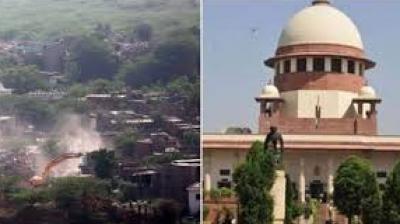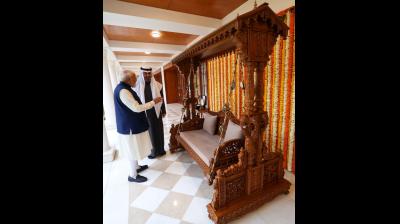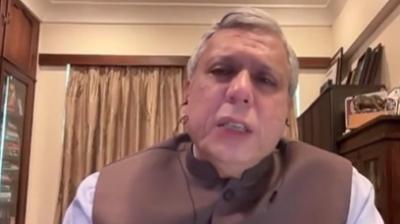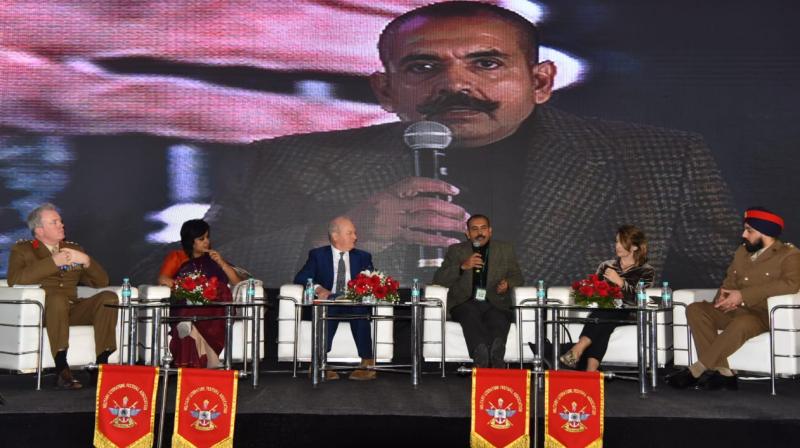
Media should be more fearless & critical in covering Defence forces, feel panelists at MLF 2018...
Spokesman news Service: Chandigarh, December 9: Panelists at MLF 2018 on Sunday called for a more fearless, balanced and critical approach while covering the defence Forces, particularly the Army, to ensure transparency and credibility of information flow to public. Participating in a discussion on 'Reporting From The War Zone', during the third and final day of the Festival here at the Lake Club, they also suggested a proper training module for journalists covering frontline battles and exploits of soldiers during counter insurgency operations.
The eminent group of participants included former UK Chief of Staff 3rd Division Brig. Justin Maciejewski and his wife Rebecca Maciejewski, Media producer Arati Singh, Chandigarh based reporter who had covered Kargil, Vikramjit Singh, besides Major James Sutherland and Captain Jay Singh Sohal of UK Army. Calling for a transparent system for decisions pertaining to announcement of Gallantry Awards, the panelists said there were certain misgivings amongst senior commanders regarding particular citations.
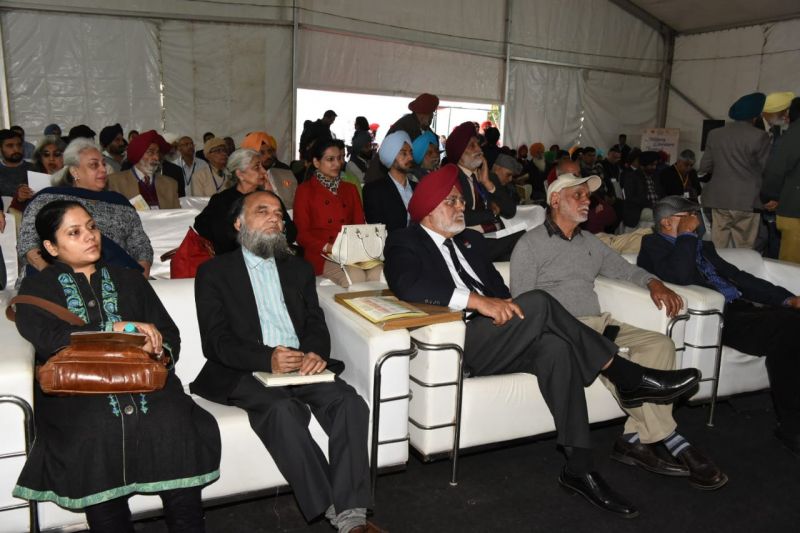 Lieutenant General T S Shergill, Senior Advisor to Punjab CM, Military Historian from UK Amarpal Singh Sidhu and Dr Indu Banga
Lieutenant General T S Shergill, Senior Advisor to Punjab CM, Military Historian from UK Amarpal Singh Sidhu and Dr Indu Banga
Rebecca Maciejewski stated that governments needed to be more forthcoming in engaging journalists while sharing information leading to such decisions. Seconding the thought, Vikramjit Singh, who has covered the frontline operations twice in Jammu & Kashmir, said that regimental affiliations at times do play a partisan role in awarding gallantry awards like PVC. Earlier, highlighting the psychological trauma faced by soldiers on war duty, Vikramjit brought alive the poignant tale of Indian personnel honouring the dead Pakistani intruders killed during their Kargil conquest by performing their last rites.
“At first, our men were seething with anger at the thought of being asked to rest the bodies of Pakistani soldiers who had killed their comrades, but later, senior commanders consoled them, explaining they at the end of the day they were soldiers too,” he said. Underscoring the need to train young journalists to acquaint them with the sensitivity required for frontline reportage, Arati Singh called for more systematic investment into this vital aspect. Youngsters aspiring to take on this very difficult role of narrating real war stories of valour and heroism needed to be nurtured, she added.
Sharing their thoughts on the nuances of war coverage, Brig. Justin Maciejewski and Captain Jay Singh Sohal of UK Army cautioned against the temptation to go for an exclusive story. Real war has real people, with the lives of their families and friends entangled with the fate of the war, said Captain Jay Singh Sohal, while referring to the London beheading of a UK soldier by Jihadists, the video of which was sadly aired by many channels.
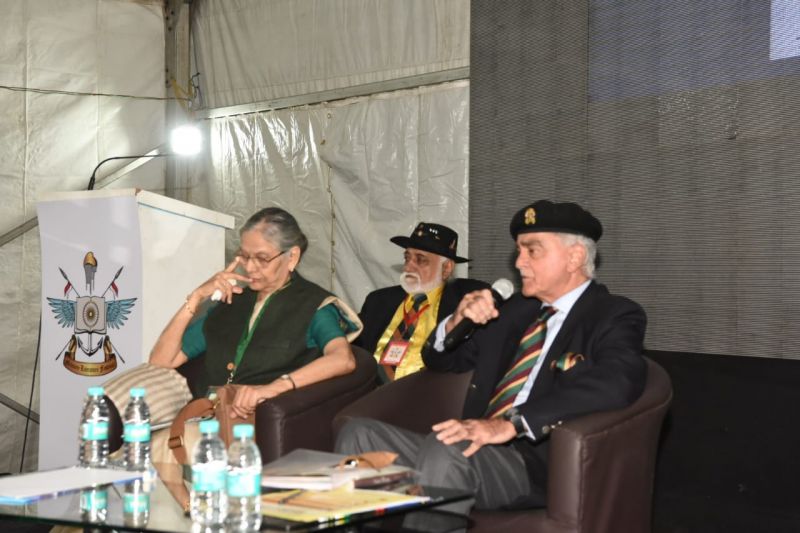 Two Battles for survival-Feroz Shah 1845 and Chillianwala 1849
Two Battles for survival-Feroz Shah 1845 and Chillianwala 1849
“We have to be more sensitive to the lives of all those involved,” he said, adding that by irresponsibly publishing the 'content' we only end up promoting the nefarious designs of the perpetrators. In this age of information, it was getting increasingly difficult to ascertain the veracity of facts, said Major James Sutherland, highlighting the role of the editorial checks and balances in the fight to be more 'instant' than others.
Meanwhile, another session on ‘Two Battles for survival - Feroz Shah 1845 and Chillianwala 1849’, concluded that if the successors of Maharaja Ranjit Singh had followed his policy of not expanding east of Sutlej, Sikhs would have been able to retain the entire landmass consisting of J &K, Pakistan, upto Multan, besides North West frontier and Gilgit, and the country would not probably have suffered partition.
Lieutenant General T S Shergill, Senior Advisor to Punjab CM, Military Historian from UK Amarpal Singh Sidhu and Dr Indu Banga shared various perspectives of these two important battles that enabled the British Empire to embed itself in India for the next 100 years. Dwelling on the strategic importance of these two battles, Shergill said that despite the whitewash by East India Company and British Historians, the British had not actually won these battles but got them on a platter. Due to strange unexplained reasons, Lal Singh in Feroz Shah battle decamped and Sher Singh leading Chillianwala battle gave away after winning it.
General Shergill regretted that the policy of consolidation of the armed forces adopted by Maharaja Ranjit Singh was abandoned after his death, and in the ensuring battle for succession, the morale and discipline of his army was the first casualty. Describing Maharaja Ranjit Singh as a visionary war strategist, Shergill said that from 1830 to 1839, his army, that was predominantly cavalry based, expanded with artillery infantry, and French officers were inducted in to give professional training to his force.
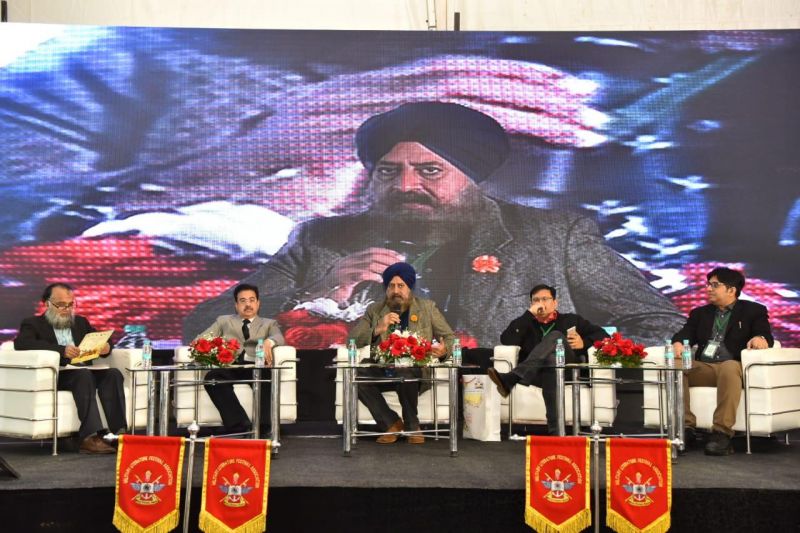 Experts discussing the topic The battles of Meerut and Delhi 1857 during MLF
Experts discussing the topic The battles of Meerut and Delhi 1857 during MLF
The East India Company got a window of opportunity to take on Punjab after the death of Ranjit Singh and realised that there was no effective second line of succession as “Nothing grows under a Banyan Tree”, said Shergill. He said that infighting amongst the successors, greed, urge to loot and plunder, and forgetting the golden principle of not crossing the Sutlej gave an opportunity to the British to eye what they once considered the forbidden territory of Maharaja Ranjit Singh.
There was consensus among the panelists that Khalsa rule could have survived British onslaught if they had not succumbed to the mechanisations of the British and followed the golden rule of Maharaja Ranjit Singh. Meanwhile, during a discussion on ‘The Battle for Delhi and Meerut 1857’, Squadron Leader (Retd.) Rana TS Chhina said that the uprising which took place in 1857 was probably the first event during which the Indian Army made a strong political statement. He said that though the event took place more than 150 years ago, it continues to hold a lot of fascination for Indians and the Indian Army.
Eminent historian and author, Dr. Amit Pathak said that the uprising that took place in British cantonments had a distinct feature, as Sadhus and Maulvis, who were otherwise not expected to take part in politics, emerged as the main messengers for the revolts. He said that the same Sadhu who had spread the message of revolt in Meerut, was also seen prior to this in Kalka and Ambala. Dr. Pathak said that another unique feature of the revolt was that generations of people who took part in this revolt had to face the consequences due to the confiscation of their land holdings and homes.
Historian Amaresh Mishra said that there were several myths associated with the uprising, which were slowly being wiped out. He said that Indian rebels fought very valiantly and it was on record that the Indians made around 36 attacks on the British forces which trying to sneak into Red Fort from the Ridge outside Delhi. Eminent journalist and the Editor of the Times of India, Manimugdha Sharma, said that 1857 uprising was the last full-fledged war fought in the Indian subcontinent.
He said that subsequent wars in post-independence period were largely fought on the borders but this war was spread over a large part of the country. Eminent historian Prof. Saiyid Zaheer Hussain Jafri said that the most important effect of the uprising was that Red Fort emerged as the symbol of sovereignty of the country. He said that it inflicted a serious blow on British psychology as the Bengal Regiment, which was raised and trained as Blood and Iron of the British Empire, deserted its masters.




